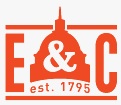 Hearing Description:
Hearing Description:
The Energy and Commerce Committee has held 3 separate hearings this week on mobile medical applications. The central theme of the hearings was how regulated mobile medical apps should be, and if an excise tax stemming from healthcare legislation would affect consumer’s smartphones and tablets. Food and Drug Administration representatives testified that consumer’s smartphones and tablets would not be defined as “medical mobile technology” and thus, not subject to the excise tax.
Hearing Date: March 21st, 2013
Hearing Summary:
Health Information Technologies: Administration Perspectives on Innovation and Regulation
The Energy and Commerce Oversight and Investigations Subcommittee recently convened to discuss how federal regulations will affect the surge in new mobile medical technology or “apps.” The hearing is designed to explore how a tax on these technologies (originating in the Affordable Healthcare Act) will impede the growth of new innovations in the tech sector. Rep. Tim Murphy (R-Pa.) said that physicians are struggling with adopting electronic health records (EHR’s) because of a lack of guidance from federal regulations. In Rep. Diana Degette’s (D-CO.) opening statement she claimed the implementation of EHR’s were already saving providers billions of dollars and the hearing on mobile medical technologies was becoming redundant as it was already covered in two prior hearings.
Rep. Blackburn (R-Tenn.) disagreed with Rep. Degette’s claim of redundancy and encouraged a look at how to reduce regulations that would stifle innovation and access. Rep. Henry Waxman (D-CA. ) stated that after two hearings, it was clear to him that the FDA was not too heavy handed in it’s regulations on mobile medical apps. The FDA made it clear that they would not regulate cellular phones or tablets that use medical mobile apps. Waxman went on to say that the issue of overreaching regulations on medical mobile apps is a non-issue.
Ms. Christy Foreman – Director, Office of Device Evaluation, Center for Devices and Radiological HealthFood and Drug Administration testified:
- There are inherent risks with some mobile medical apps, specifically ones that affect the programming of drug infusion pumps or CT scanners that if malfunctioned, could lead to drug/radiation overdose. It therefore is the role of the FDA to monitor and regulate such devices.
- The FDA will not regulate the sale or development of smartphones and tablets, marketplaces where medical mobile apps are bought, or mobile devices that perform the functionality of an EHR.
- The medical device excise tax would be implemented by the IRS (Dept. of Treasury) and not the FDA.
Dr. Farzad Mostashari – National Coordinator, Health Information Technology, HHS testified:
- EHR adoption has doubled since 2009
- HHS is committed to building on and strengthening patient safety in relation to Health IT
- The right for consumers to be able to view their own personal health records is a central undertaking during this new wave of Health IT
- ONC (Office of the National Coordinator for Health Information Technology) is concerned with the security aspect of mobile medical technology
In response to questions, Christy Foreman said:
- The FDA will focus on regulating high level risk devices and not mobile devices with low risk applications like smartphones and tablets
- It takes 67 days for the FDA to review mobile medical apps
- The excise tax for medical devices will only apply to devices in terms of “purpose” and not a “platform.” The medical device will only be taxed if it is only used solely as a medical device.
In response to questioning, Dr. Farzad Mostashari said:
- Data driven processes are saving more money and lives in comparison to paper-based approaches.
- FDA’s approach to EHR’s is for providers to choose their own systems that meet their needs, but encouraging industry consensus in allowing those systems to communicate with one another.
- HHS is using every asset available to increase the sharing of medical data.
Hearing Website: http://energycommerce.house.gov/hearing/health-information-technologies-administration-perspectives-innovation-and-regulation
Links to Testimony:




